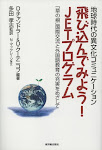"I would suggest to anyone who really wants to understand what is happening today not to neglect theology." ~ G. Agamben"One of the elemental terms that animates Giorgio Agamben’s discourse in Homo Sacer: Sovereign Power and Bare Life is “sovereignty,” which he borrows from the old Nazi apologist, Carl Schmitt. As George Schwab notes in the introduction to Political Theology: Four Chapters on the Concept of Sovereignty, Schmitt’s political theory can be summarized as by “virtue of its possession of a monopoly on politics, the state is the only entity able to distinguish friend from enemy and thereby demand of its citizens the readiness to die." For Schmitt, the concept of sovereignty has its roots in Thomas Hobbes’s belief that the one who has authority can demand obedience – and it may not always the legitimate sovereign who possesses authority.
Schmitt was profoundly affected by the political instability incurred after World War I during the Weimar Republic and was convinced the church was the universal spiritual entity that had no equal. This contributed to his ideas about sovereignty, which he explained in Political Theology:
All significant concepts of the modern theory of the state are secularized theological concepts not only because of the historical development – in which they were transferred from theology to the theory of the state, whereby, for example, the omnipotent God became the omnipotent lawgiver – but also because of their systemic structure, the recognition of which is necessary for a sociological consideration of these concepts...The idea of the modern constitutional state triumphed together with deism, a theology and metaphysics that banished the miracle from the world.
The proper order of things for Schmitt included rights, the state, followed lastly by the individual. After World War I, when Schmitt became disillusioned with the cumbersome process of democracy, he began to explore a starker political realism. If the state exists in spite of an ever-present possibility of conflict, what could be done to insure its security? Schmitt didn't believe that law alone could save the state from this dangerous situation and so he began to reconsider Thomas Hobbes’s “mutual Relation between Protection and Obedience” as a source for sovereignty. In fact, Schmitt has often been referred to as the “Hobbes of the twentieth century” and he shared the belief that man is basically dangerous and his primary goal should be his physical security. As a result, Schmitt opted for a strong state that would ensure order, peace, and stability and this led him towards an authoritarianism of “total” government, or totalitarianism. His definition of sovereignty opens Political Theology:
Sovereign is he who decides the exception.
Only this definition can do justice to a borderline concept. Contrary to the imprecise terminology that is found in popular literature, a borderline concept is not a vague concept, but one pertaining to the outermost sphere. This definition of sovereignty must therefore be associated with a borderline case and not with routine. It will soon become clear that the exception is to be understood to refer to a general concept in the theory of the state, and not merely to a construct applied to any emergency decree or state of siege.
This “borderline” notion, based on an extreme or dangerous threat, developed into a desire for a personal component - a "strongman" - who could act swiftly in the case of threats to the state's security. Schmitt was ultimately uncomfortable with the concept of the sovereignty of law over men and came up with a definition that challenged the legal order: “The exception is that which cannot be subsumed.” In this way, Schmitt’s sovereign is both bound by and transcends the legal order and thus represents a paradox. Agamben recognizes this paradox and extrapolates it further in Homo Sacer:
The paradox of sovereignty consists in the fact the sovereign is, at the same time, outside and inside the juridical order…This means that the paradox can also be formulated this way: ‘the law is outside itself,’ or: ‘I, the sovereign, who am outside the law, declare that there is nothing outside the law.
Explained this way, it not difficult to understand the subsuming power that the government embodies in a liberal democracy like the U.S. during a state of exception represented by the “War on Terror.” In the wake of 9/11, it has become common knowledge that legal advisers to President George W. Bush, such as John Yoo, concocted exceptions to definitions of torture. In December 2005, when Yoo debated University of Notre Dame law professor Douglass Cassel, the following exchange took place:
Cassel: "If the President deems that he's got to torture somebody, including by crushing the testicles of the person's child, there is no law that can stop him?"
Yoo: "No treaty."
Cassel: "Also no law by Congress — that is what you wrote in the August 2002 memo..."
Yoo: "I think it depends on why the President thinks he needs to do that."
It was in this climate, where torture could depend on what intention a president may or may not have, that a state of exception based on Agamben’s interpretation of Schmitt emerged in the U.S. Once the executive branch of the federal government expressed itself as the paradox that is at once “outside and inside the juridical order," the concept would eventually migrate to domestic centers of governance such as governors’ offices and state legislatures. This lethal combination of biopolitics and sovereign exception forms a direct threat to individual liberty and privacy as is currently being manifested by the Republican “War on Women.” In an ironic twist, the party that created the initial state of exception in the form of a “War on Terror” could now be held accountable for its overreach of authority.
















No comments:
Post a Comment